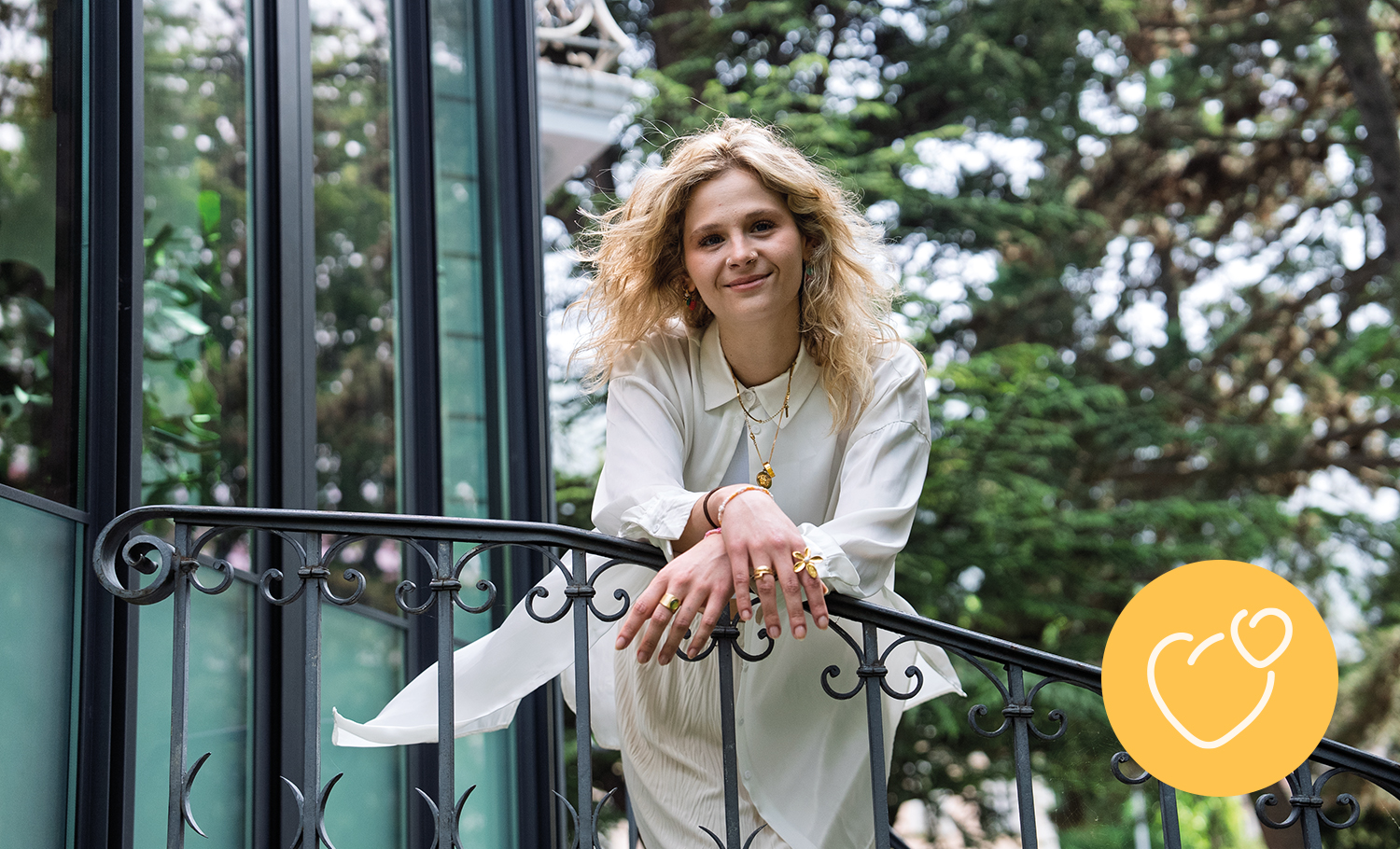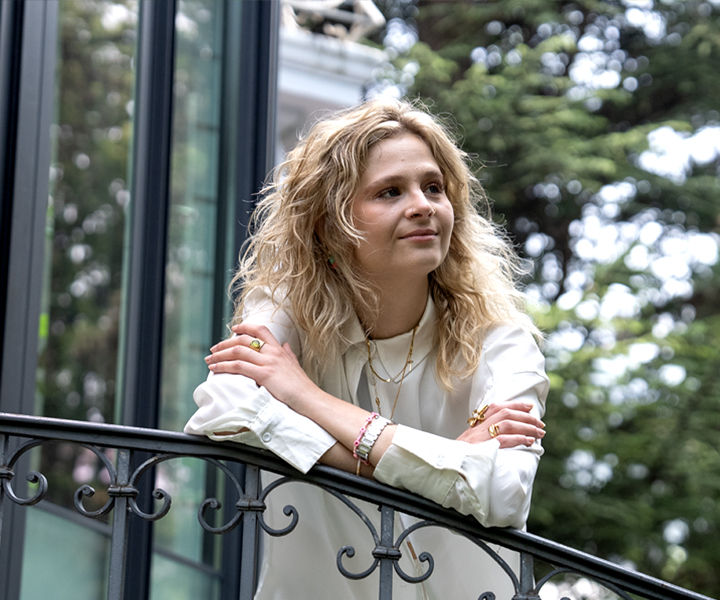Young women and mental health: voices that are speaking out
05 September 2025 | Comment(s) |
Adrien Jacquérioz

The mental health of young people in Switzerland, particularly women, is deteriorating, and suicide, which is closely linked to this issue, remains a taboo subject. Anna Margolfo, a psychologist by profession and also a volunteer with the STOP SUICIDE association, shares her experience and tells us how it has opened new doors for her.
Anna, thank you for sharing your story with us. When did you first realise that something was wrong?
My first crisis happened when I was 15 and was the result of a combination of factors. The uncertainty in my romantic life, into which I was investing all my energy, along with my relationship with school, family and friends, led to my unhappiness. I became isolated and thought that everyone hated me. Things calmed down when I was around 17, but came back more intensely between the ages of 20 and 22.
This emotional distress mainly took the form of anxiety and depression and suicidal thoughts. I ate very little, spent a lot of time in bed and didn't take care of myself. At the time, there wasn't as much awareness about mental health issues and people were less informed about how to recognise them.
What were the first steps you took to get better?
The second time I had a breakdown, I cut off all my unhealthy social relationships and kept only those that were positive for me. I made my body and mental health a priority. I also saw several psychotherapists before finding one that suited me. Psychotherapy was fundamental to my recovery.

Which activities helped you the most?
In addition to psychotherapy, I was able to count on the support of my best friend, who is also a psychologist and has been affected by the same issues. Walking in the countryside, reconnecting with myself and doing simple activities such as painting, reading or having a skincare routine also did me a lot of good. Spending time with my cat also helps me relax.
What was the turning point?
When I found a professional who suited me, and who still supports me today. It's not easy to find someone who can help you. The day my family really realised how unhappy I was also helped me to start on the road to recovery.
"This emotional distress mainly took the form of anxiety and depression and suicidal thoughts. I ate very little, spent a lot of time in bed and didn't take care of myself. There wasn't as much awareness about mental health issues."
How do you view mental health and suicide today?

Mental health, and suicide in particular, are less taboo subjects today. However, statistics indicate a real sense of urgency. But prevention, support and the availability of resources are improving, and progress is being made, especially for young people.
Why do you think women are more affected by this issue?
I believe it's a systemic issue that affects women more because of their role in society. They are therefore more often exposed, feel more concerned and are more likely to take action.
What advice would you give to people in the same situation as you?
Above all, avoid isolation and find the courage to talk with people around you who are willing to listen and whom you trust. Even if it is difficult and does not work at first, keep trying and ask for help, whether from those around you or from health professionals! It is also necessary to take care of yourself, physically and mentally. Remember that you are not alone, many people face these struggles and overcome them with support!
"Mental health, and suicide in particular, are less taboo subjects today. Prevention, support and the availability of resources are improving, and progress is being made, especially for young people. Remember that you are not alone, many people face these struggles and overcome them with support!"
What has this experience taught you?
My journey has taught me to respect my needs, take control of my life and think more about myself – my mental health and my body.
How are you feeling today?
I received good support, my outlook has changed and today I am better. If I encounter difficulties again, I now have all the resources and support I need to get through them and not make the same mistakes again.

Why did you sign up as a volunteer with STOP SUICIDE?
I've always been a keen campaigner and was given the opportunity to get involved with STOP SUICIDE. Suicide is a topic closely linked to mental health; in a way, it is the culmination of mental health issues. My role as a volunteer allows me to raise awareness about suicide and provide tools by informing people about the resources available. Now that I am a psychologist myself, I have a better understanding of the subject and can help others in turn.
"My role as a volunteer allows me to raise awareness about suicide and provide tools by informing people about the resources available."
Do you have a mantra or ritual that helps you on a daily basis?
My thing is lavender, it relaxes me. I also try to live as healthy a lifestyle as possible, especially in terms of diet, physical activity and sleep patterns. I also try to spend quality time with the people around me. My best friend and flat-mate is also a psychologist, so we can talk a lot about the subject.
Mental health and suicide: worrying statistics
- In Switzerland, suicide is the leading cause of death among 15-29 year olds.
- Young women are particularly affected by mental health issues.
- In 2022, 23.1% of girls aged 15 to 19 had suicidal thoughts.
- Among women aged 15 to 24, 25% show symptoms of severe anxiety, 30% show symptoms of severe depression and 29% show signs of social phobia.






